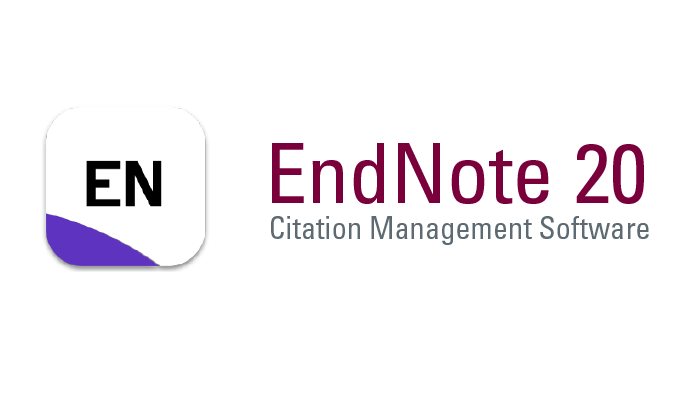KUALITAS HADIS “MAN JARRA TSAUBAHU” STUDI KRITIK SANAD DAN MATAN HADIS
DOI:
https://doi.org/10.47887/amd.v2i1.15Keywords:
Hadith Critic, Matan, Sanad, Takhrij.Abstract
This research examines the quality of the traditions "manjara tsaubahu", that they explain the prohibition of lengthening cloths or pants with arrogant intentions, whether it is being arrogant to Allah or to others, being arrogant to Allah is where when you are worshiping Allah. Then the hadiths use several kinds of commands in terms of prohibitions, including; By threatening to be reluctant by Allah, there are also those who do not accept their worship (do not get rewarded) and so on. So that if we lengthen cloths or pants with arrogant intentions, it is prohibited by Allah. The main focus in this research is the sanad and observations of the Prophet's hadiths which contain the "manjaara tsaubahu". This research is library research with the main reference being the books of the hadiths of al-Kutub al-Tis'ah and maktabah syamilah. Besides the hadith books mentioned above, books related to takhrij al-hadith are also references in this study, such as: Ushul al-Takhrij wa Dirasat al-Asanid. Research methodology of the Prophet's hadith written by Syuhudi Ismail, and others. To examine the narrators of Hadith, the books that are used as references are related to the observational study of hadith. The result of this research is the authentic quality hadith sanad, namely the history of Abu Dawud. From the eyes of the hadith, the quality of authenticity does not contradict the Qur'an and authentic traditions, common sense, historical facts, language and with Islamic principles.
References
Al-Asqallani, Ibn Hajar. (1927). Tahżib at-Tahżib (Cet. I Juz. 11). Beirut: Dar as-Sadir.
Al-Bukhari. (n.d). Shahih Bukhori. Cairo: Daar al-Matabi’ as-Sya’biyah.
Al-Ghumari. (1987). Al-Hidayah fi Takhrij Ahadist al-Bidayah. Riyadh: Alam al Kutub.
Al-Ju’fi, Muhammad Ibn Ismail Abu ‘Abdullah al-Bukhari. (1987). al-Jami’; as-Shahih al-Mukhtashar (Cet. 3). Bairut: Dar-Ibn Kasir al-Yamamah.
Al-Khatib, Muhammad ‘Ajjaj. (1989). Usul al-Hadis. Bairut: Dar al-Fikr.
An-Nasa’iy. (1978). Sunan an-Nasa’iy. Beirut: Daar al-Fikr.
An-Nasa’iy. (1968). Alfiyyatal-Hadist li al-Iraqi, juz III. Madinah: al-Maktabah as-Salafiyah.
As-Sijistani, Abu Daud. (1952). Sunan Abi Daud. Mesir: Syarikah Maktabah wa Matba’ah al-Musthafa.
As-Syakhawi. (1968). Fathul Mughit: Syarh Alfiyyatal-Hadist li al-Iraqi (juz III). Madinah: al-Maktabah as-Salafiyah.
As-Syakhawi. (1987). Fathul Mughit: Syarh al-Gumari, al-Hidayah fi Takhrij Ahadist al-bidayah. Riyadh: Alam al Kutub.
As-Syirazi, Abu Ishaq. (n.d). Tabaqat al-Fuqaha’. Baghdad: Maktabah Nu’man al-A’zhami.
Athar, Nuruddin. (1997). Manjah al-Naqd fil ‘Ulum al-Hadis (cet. 2). Damaskus: Dar l-Fikr.
At-Tirmidzi. (n.d). Sunan at-Tirmidzi. Cairo: Maktabah wa Syrikah Muhammad Mahmud al-Halabi.
Hatim, Muhammad Abdurrahman. (n.d). Kitab Jarh wa at-Ta’dil. Beirut: Daar al-Kutub Ilmiyah.
Ibn Hanbal, Ahmad., & al-Syaibani, Abu Abdullah. (n.d). Musnad Ahmad Ibn Hanbal, al-Qahirah: Muasiah Qirthabah.
Ibn Majah, Imam. (n.d). Sunan Ibnu Majah. Riyadh: Maktabah al-Ma’arif.
Ismail, Syuhudi. (1992). Metodologi Penelitian Hadist Nabi. Jakarta: Bulan Bintang.
Muslim, Imam. (1924). Shahih Muslim. Cairo: Maktabah al-Misriyah.
Wensinck, A.J., & Abd. al-Baqi, Muhammad Fuad. (1936). Al-Mu’jam al-Mufahras li al-Alfadhi al-Hadits an-Nabawi. Leiden: Maktabah Bril.
Yuslem, Nawir. (2001). Ulumul Hadist. Jakarta: Mutiara Sumber Widiya.
Downloads
Published
How to Cite
Issue
Section
License
Copyright (c) 2021 Muhammad Nasir

This work is licensed under a Creative Commons Attribution-ShareAlike 4.0 International License.
Authors retain copyright and grant the journal right of first publication and this work is licensed under a Creative Commons Attribution-ShareAlike 4.0 that allows others to share the work with an acknowledgement of the works authorship and initial publication in this journal.
All articles in this journal may be disseminated by listing valid sources and the title of the article should not be omitted. The content of the article is liable to the author.
Authors are able to enter into separate, additional contractual arrangements for the non-exclusive distribution of the journal's published version of the work (e.g., post it to an institutional repository or publish it in a book), with an acknowledgment of its initial publication in this journal.
Authors are permitted and encouraged to post their work online (e.g., in institutional repositories or on their website) prior to and during the submission process, as it can lead to productive exchanges, as well as earlier and greater citation of published work.
In the dissemination of articles by the author must declare the Al-Madaris Jurnal Pendidikan dan Studi Keislaman as the first party to publish the article.














